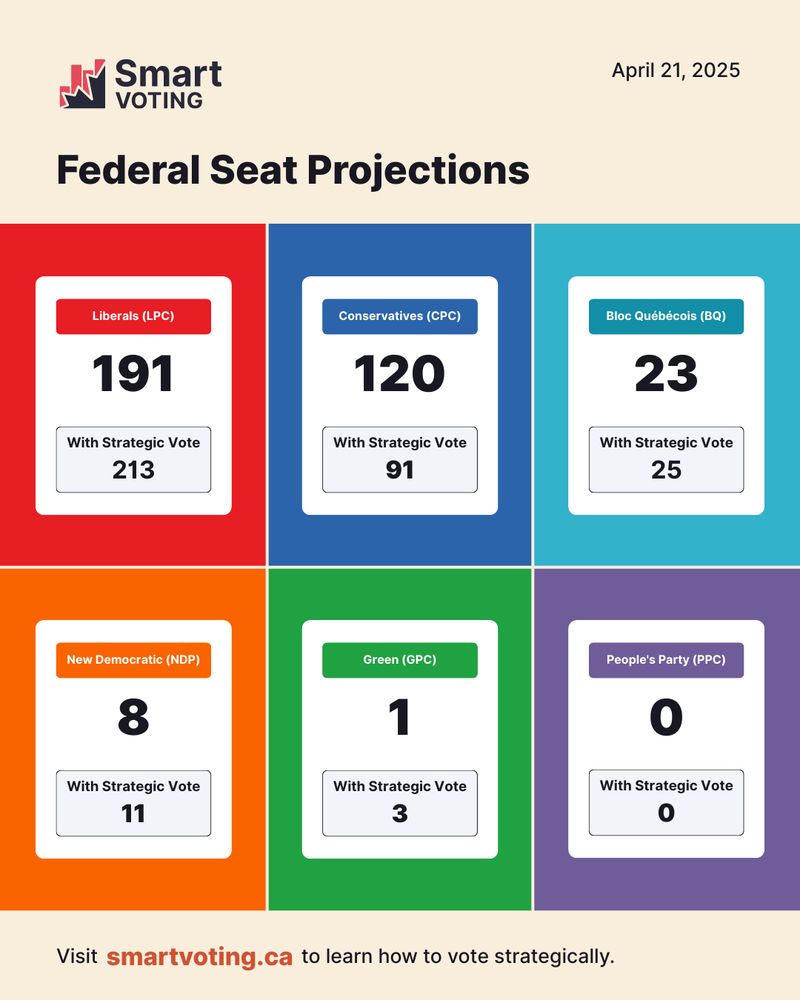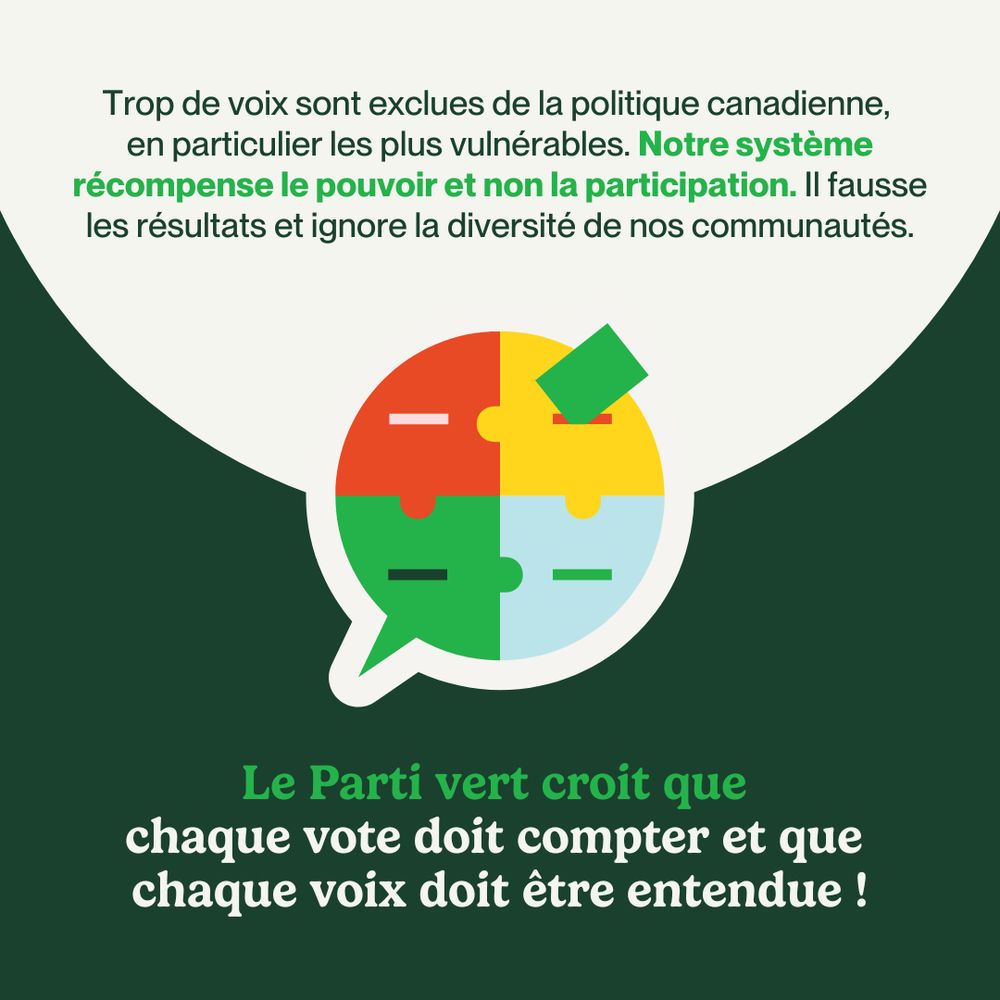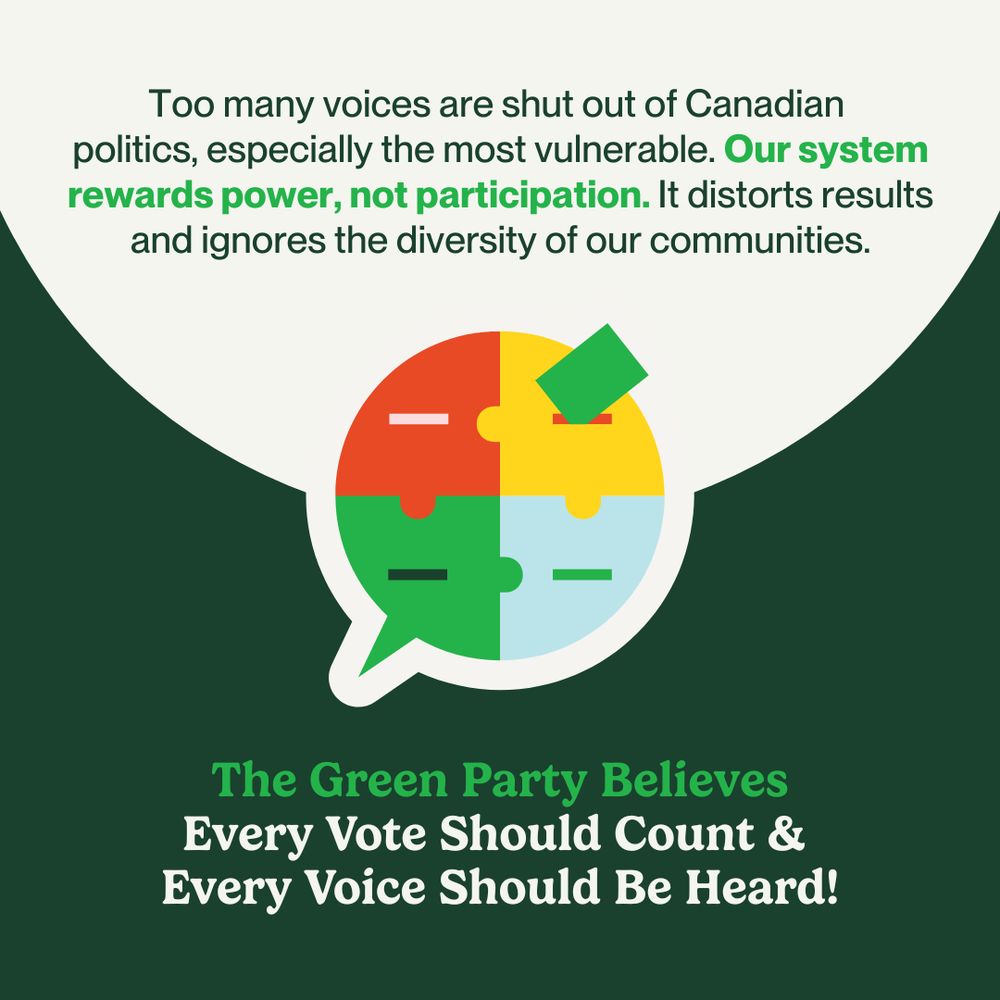Damien Kurek, the Conservative MP-elect for Battle River-Crowfoot (Alberta), just announced he's stepping down to allow Poilievre to run in a by-election | CBC News
AlolanVulpix @ AlolanVulpix @lemmy.ca 帖子 672评论 966加入于 4 yr. ago
Media Ecosystem Observatory: Elections used to be shaped by silence. Now, they’re shaped by what doesn’t show up in your feed. Meta’s news ban is leaving millions of Canadians in the dark
Cooperate for Canada: Check out our endorsements at CooperateforCanada.ca #cdnpoli #elxn45 #elxn2025 #neverpoilievre
SmartVoting.ca: We continue to see tight races between the LPC, BQ and NDP resulting in a flip-flop of numbers. CPC number is still firm at 120.
Longest Ballot Committee: "I'll just go for these gigantic ballots. At least they will make FPTP look faintly ridiculous", "Ha! I win. In the most minor way possible..."
Canadiens ont l'impression que leur voix ne compte pas. Nous croyons en un avenir où la politique est au service du peuple, et nous ne nous arrêterons pas tant que tout le monde n'aura pas un siège
GPC: Too many Canadians feel like their voices don’t matter. They’re right. We believe in a future where politics serves the people, and we won’t stop until everyone has a seat at the table.
Jagmeet Singh: Grab your partner, friends, and family — grab a coffee, and GO VOTE! Advance polls are open friends. Canada works best when we work together
Longest Ballot Committee: lots of complaints about a big piece of paper, and not a single peep about why MPs being in charge of election rules serves voters well and isn’t a conflict of interest
Charlie Angus: Canada is on the front lines of the fight for democracy. When the gangster regime tells us to bend the knee we say #elbowsup
Last day of advance polls from 9:00 to 9:00! Your Voter Information Card (VIC) has the location. If you didn't yet receive your VIC, check the Voter Information Service
Fair Vote Canada 2025 Election Ad: Winner-take-all voting systems can concrete a lot of power with one party and one person. In Canada, a party can get all the power with 39% of the vote.
Day 3 of advance polls from 9:00 to 9:00. Advance polls are also open on Monday. Your Voter Information Card (VIC) has the location. If you didn't yet receive your VIC, check the Voter Info Service
Can libraries help remind Canadians what democracy is all about? | CBC News
Why conversation is key in fighting polarization and helping democracy | CBC News
Social media misinfo, disinfo rising as federal election nears, says expert | CBC News




This issue falls out of the scope of these electoral systems. It's like asking "how would MMP/STV handle foreign interference", when neither MMP/STV are supposed to handle foreign interference. So, if what you really want to know is how local representation maintained regardless of electoral system, the answer is to have stronger rules and regulations surrounding elections. Particularly, banning "parachute" candidates, which are candidates that run in electoral districts of which they are not local to.
Under MMP, no. It would be like if a candidate was allowed to run in multiple electoral districts.